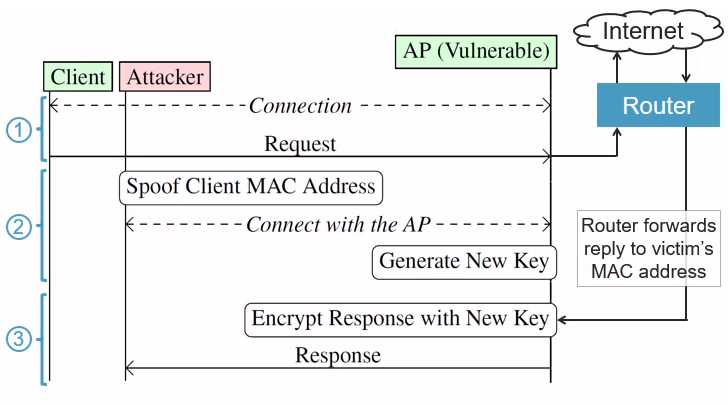A group of academics from Northeastern University and KU Leuven has disclosed a fundamental design flaw in the IEEE 802.11 Wi-Fi protocol standard, impacting a wide range of devices running Linux, FreeBSD, Android, and iOS.
Successful exploitation of the shortcoming could be abused to hijack TCP connections or intercept client and web traffic, researchers Domien Schepers, Aanjhan Ranganathan, and Mathy Vanhoef said in a paper published this week.
The approach exploits power-save mechanisms in endpoint devices to trick access points into leaking data frames in plaintext, or encrypt them using an all-zero key.
Besides manipulating the security context to leak frames from the queue, an attacker can override the client’s security context used by an access point to receive packets intended for the victim. This attack pre-supposes that the targeted party is connected to a hotspot-like network.
“The core idea behind the attack is that the manner in which clients are authenticated is unrelated to how packets are routed to the correct Wi-Fi client,” Vanhoef explained.

Cisco, in an informational advisory, described the vulnerabilities as an “opportunistic attack and the information gained by the attacker would be of minimal value in a securely configured network.”
The findings arrive months after researchers Ali Abedi and Deepak Vasisht demonstrated a location-revealing privacy attack called Wi-Peep that also exploits the 802.11 protocol’s power-saving mechanism to localize target devices.
The research also follows other recent studies that have leveraged the Google Geolocation API to launch location spoofing attacks in urban areas, not to mention use Wi-Fi signals to detect and map human movement in a room.
Source: https://thehackernews.com/










